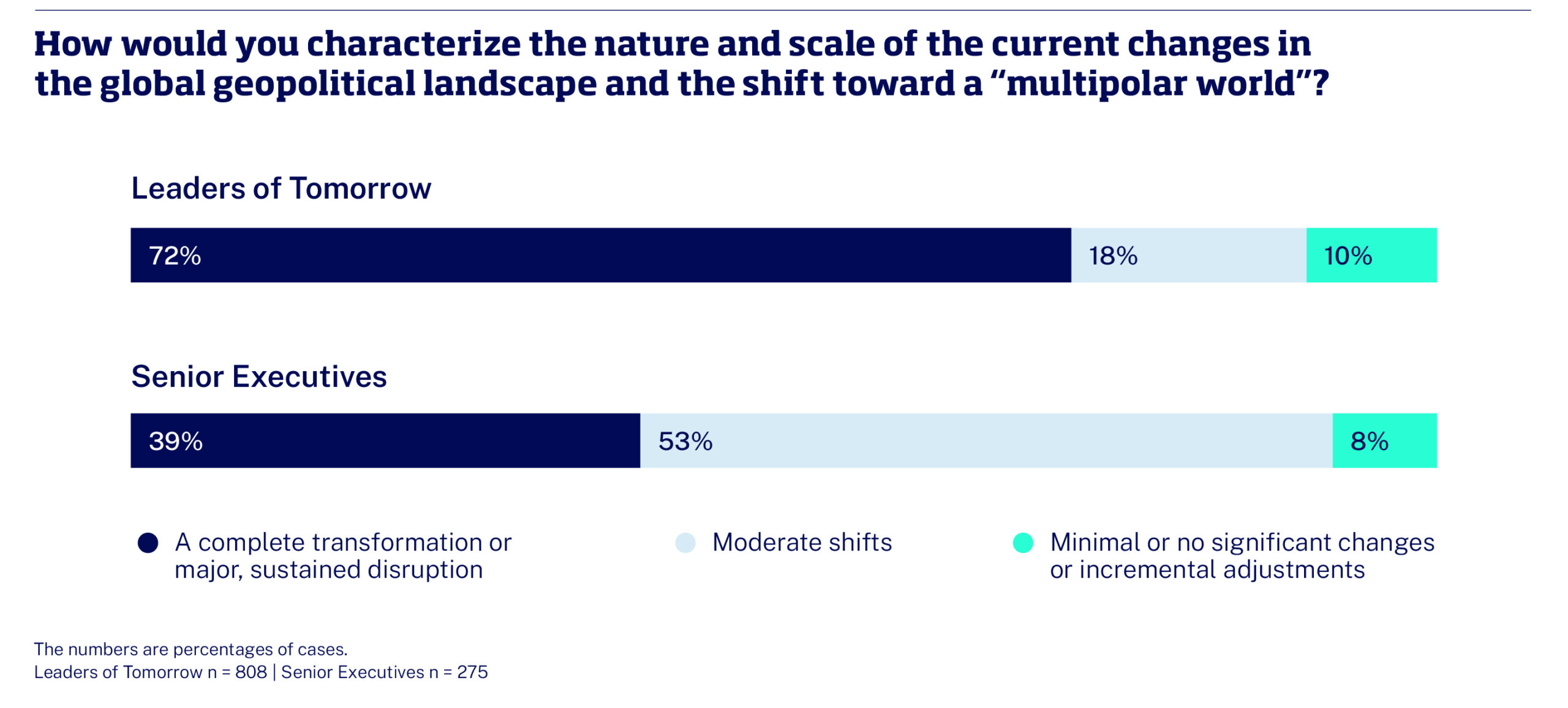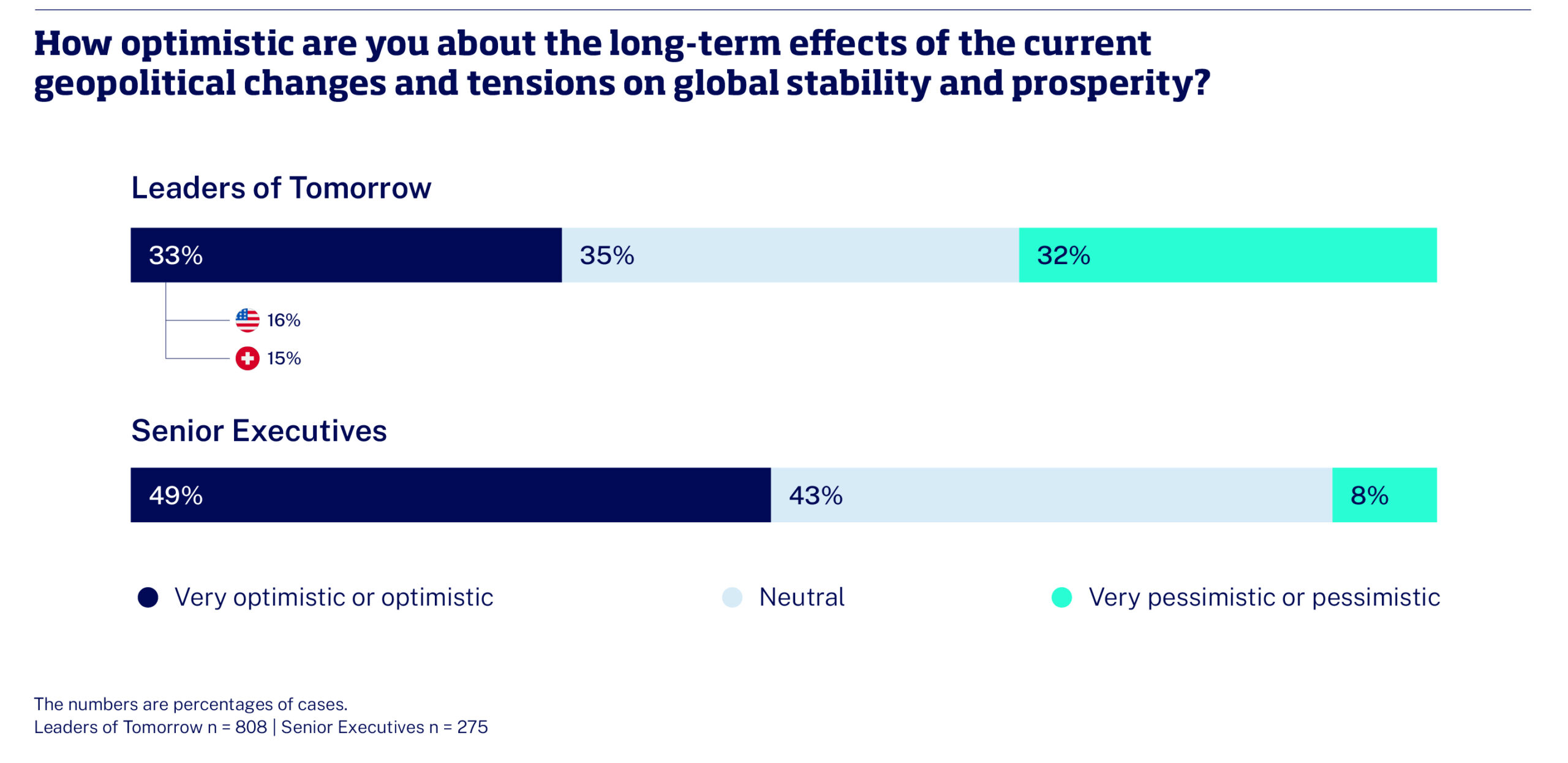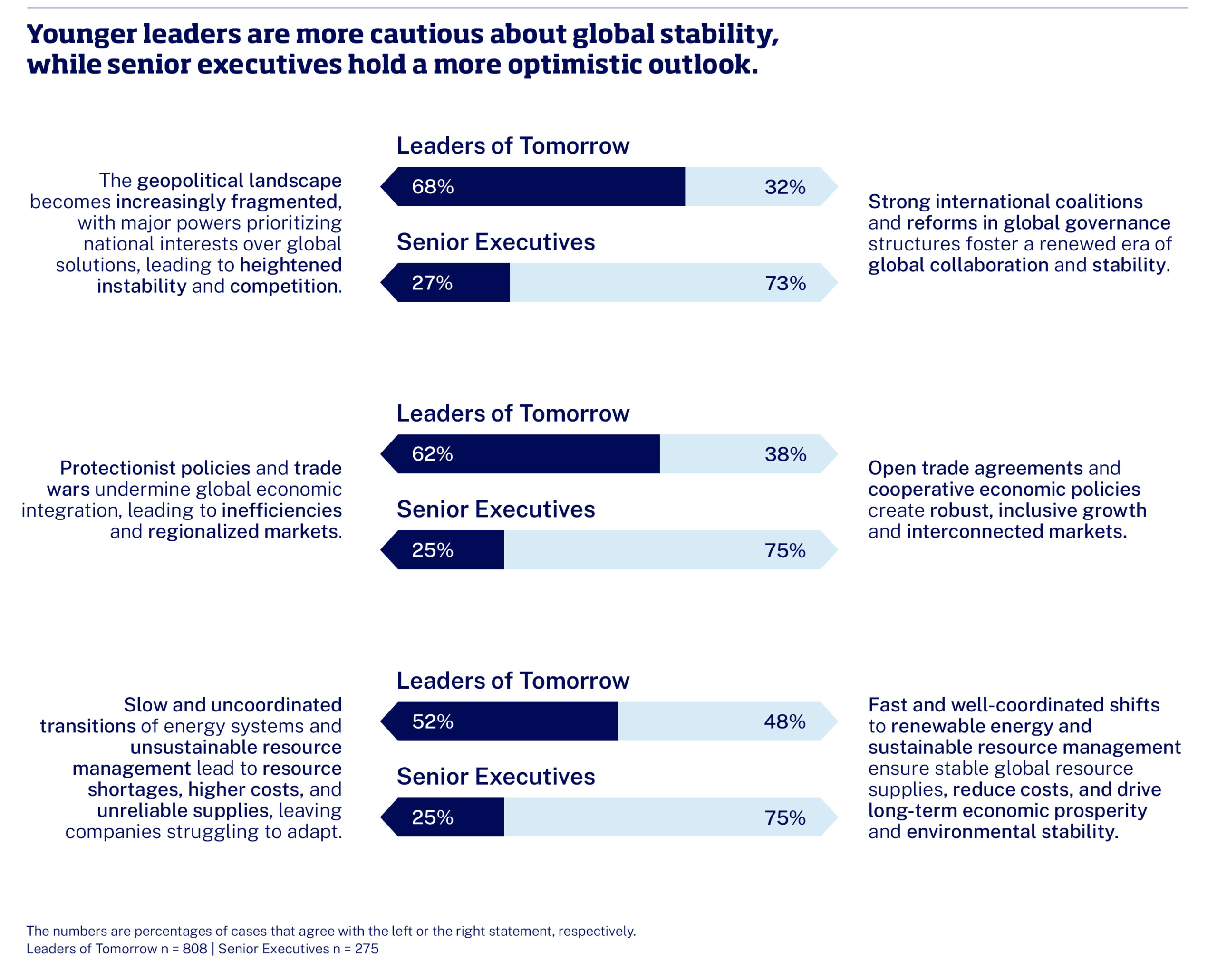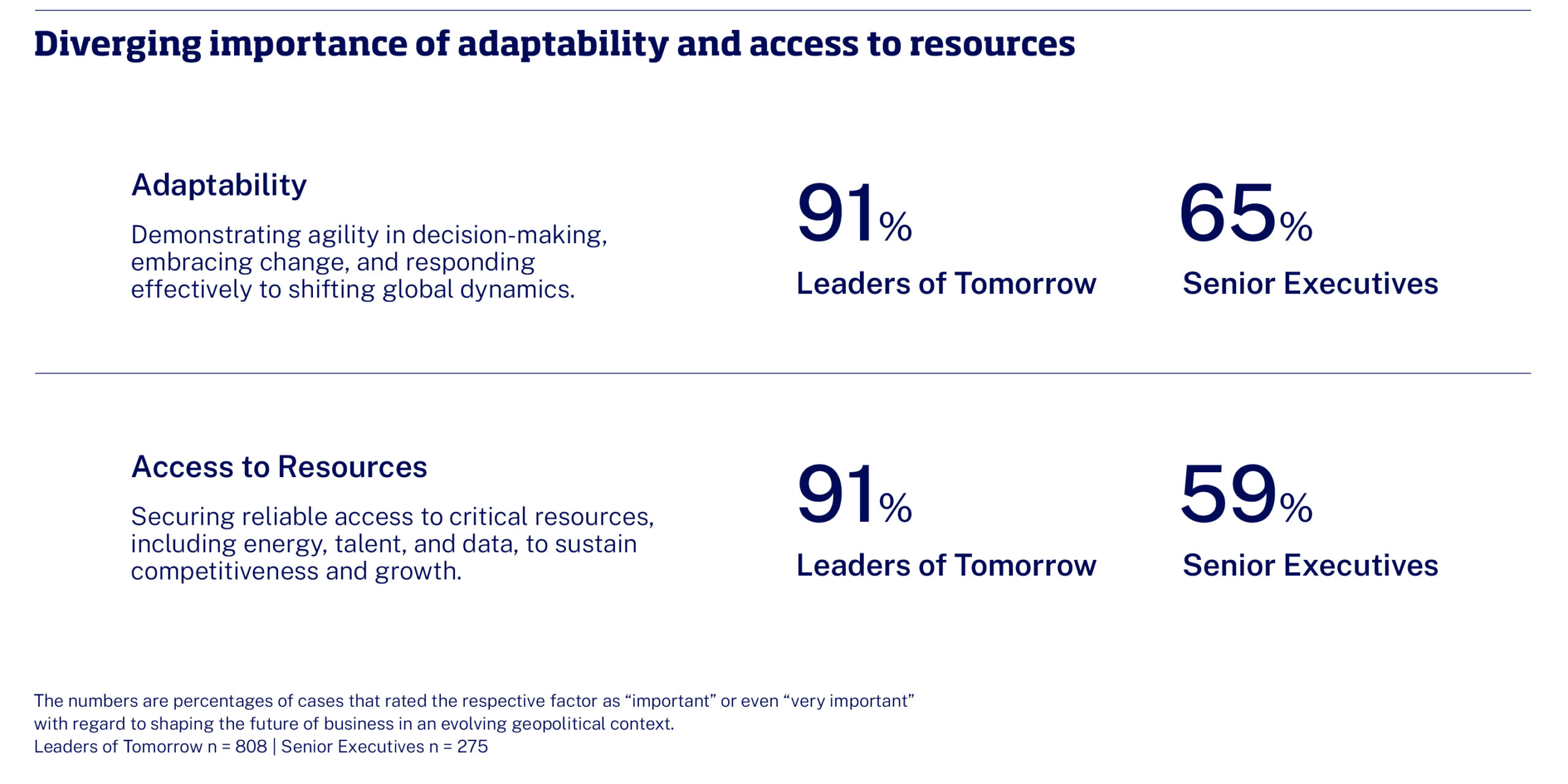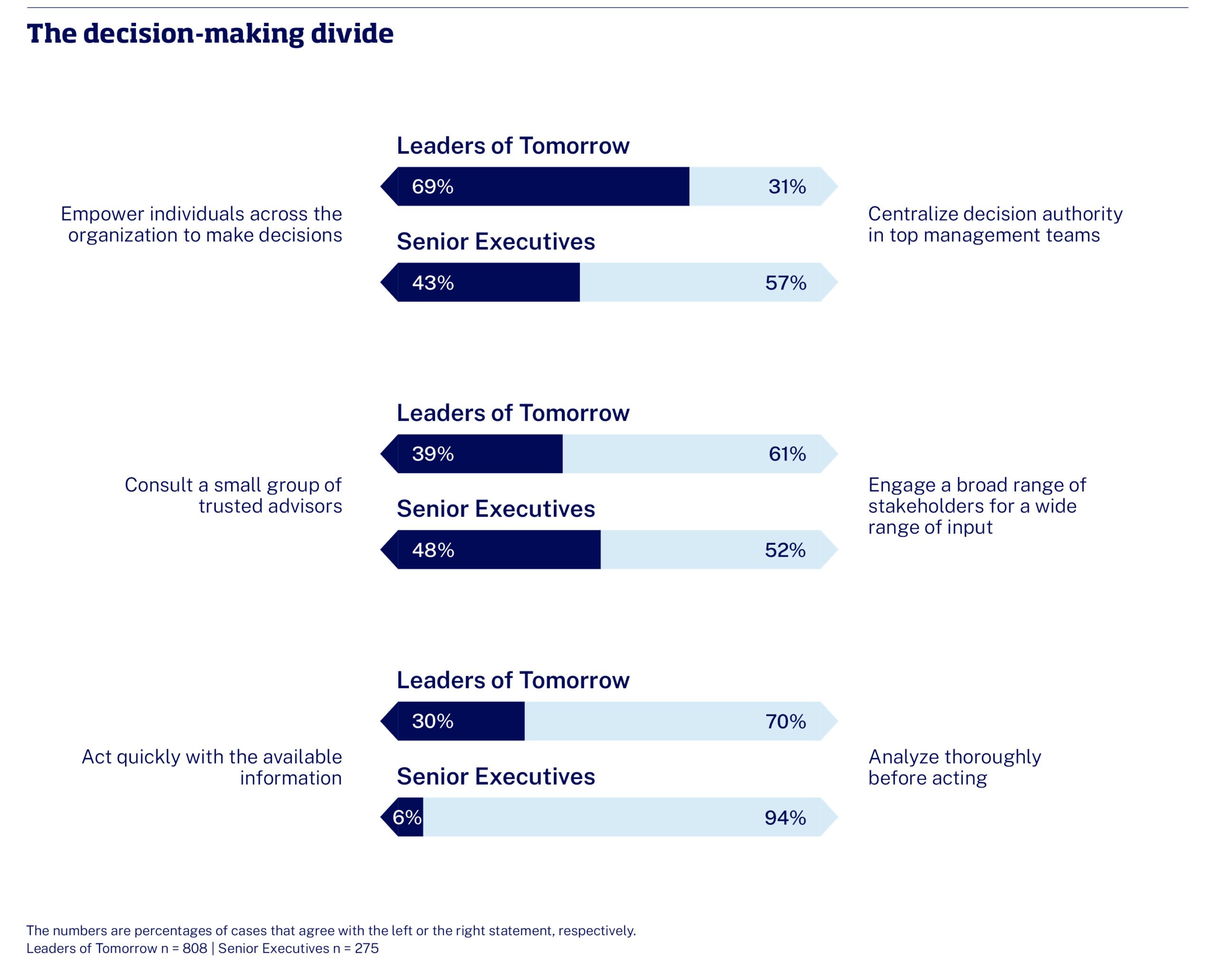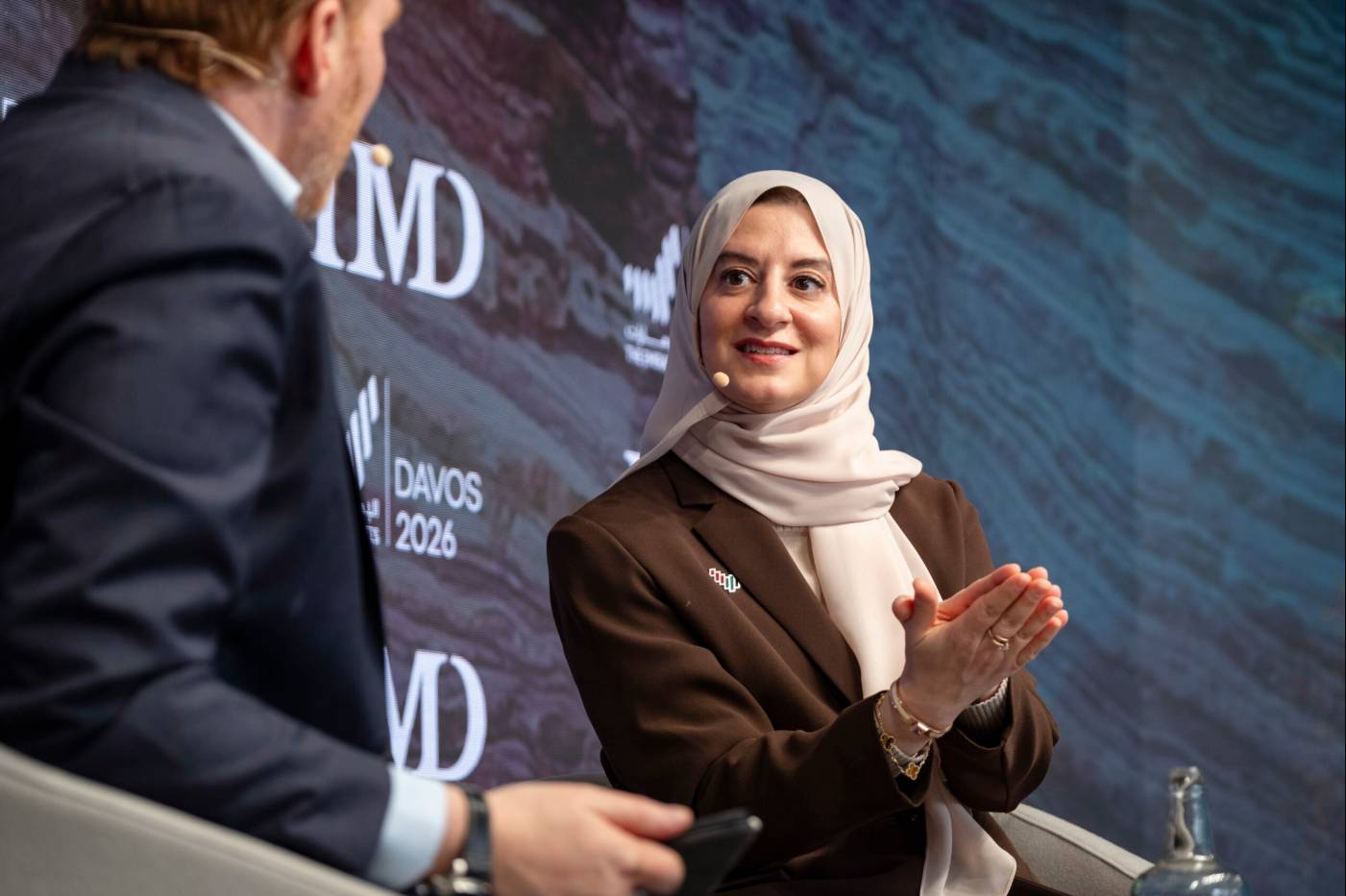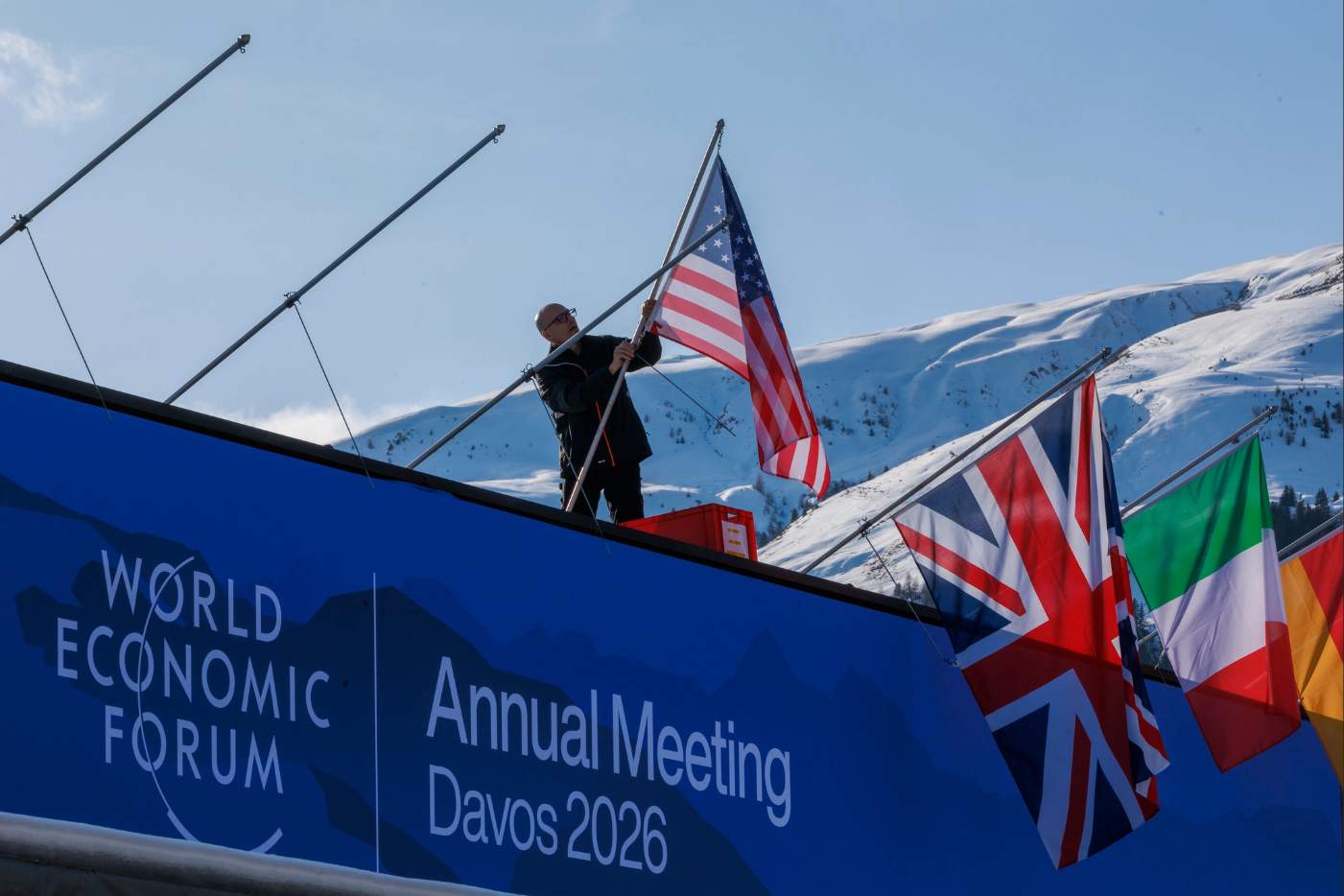First, the next generation calls on businesses to fundamentally transform corporate structures. 65% of the Leaders of Tomorrow – compared to roughly half of senior executives – believe these structures are ill-equipped to manage the challenges posed by current geopolitical shifts. The leaders of the future call on senior executives to build their organizations’ capabilities to anticipate risks, rewire value chains, and react quickly when short-term disruptions hit.
Two priorities stand out: The younger generation places significantly more emphasis on organizational adaptability compared to their senior counterparts, meaning that they are likely to advocate for dynamic scenario planning and agile pivot strategies. Securing critical resources (talent, energy, data) is a significantly greater concern for emerging talent than for their senior counterparts, indicating that younger leaders would prioritize investing in securing supply chains, talent, and data pipelines amid geopolitical competition. This resonates with what Nikolaus Lang, Global Leader of the BCG Henderson Institute, calls the need for businesses to “build their geopolitical muscle”.
Second, the next generation thinks current disruptions require a more decentralized approach to decision-making and leadership. More than two-thirds of this cohort strongly prefer distributed decision-making, advocating for greater empowerment at all levels of the organization. They believe that leadership should be participatory and distributed rather than concentrated at the top. In contrast, most senior executives (57%) lean toward centralized authority. In their view, top management is responsible for making critical strategic decisions and maintaining clear control over the organization’s direction, a model associated with stability and consistency.
These opposing viewpoints pose a critical leadership challenge: How can an organization foster agility and inclusivity without sacrificing strategic consistency? Solving this issue will likely require reimagining leadership structures, making room for younger leaders’ input and initiative while still leveraging senior leaders’ experience and big-picture perspective.


